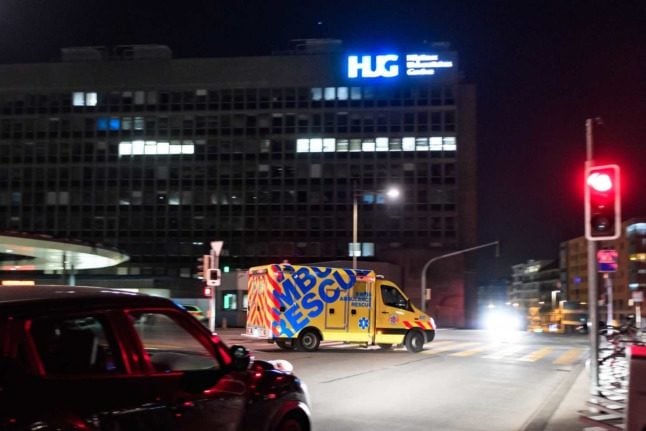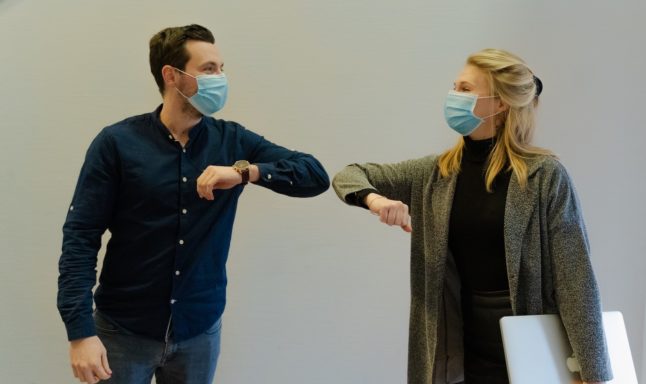At a press conference on Wednesday afternoon, several Swiss experts warned that Switzerland was on course to reach Covid infection rates similar to those of neighbouring Austria in three weeks time.
Switzerland’s Covid Taskforce chief Tanja Stadler warned “Switzerland is three weeks behind Austria”, pointing to current trends in case numbers and hospitalisations.
On Monday, November 22nd, Austria shuttered bars and restaurants, while announcing that the Covid vaccine will become compulsory in February next year.
READ MORE: Will Switzerland make the Covid vaccine compulsory?
The Taskforce said the number of people in hospital with Covid was increasing by 40 percent each week and will reach Austria-style capacities in mid-December, with surgeries cancelled and hospitals needing to make triage decisions about who to treat in intensive care.
Some central Swiss cantons have already started putting plans in place to move patients due to capacity issues, while in Lucerne hospitals have been cancelling elective surgery appointments.
“Elective interventions have already had to be postponed in order to be able to care for the people in the intensive care unit,” Lucerne health director Guido Graf told Blick.
“We have to prepare for a new wave,” cantonal doctor Aglaé Tardin told the press conference.
Federal Office of Public Health crisis management boss Patrick Mathys said “the situation is classified as critical.”
New measures on the horizon?
As recently on Thursday, Swiss Health Minister Alain Berset ruled out tightening the existing Covid measures at a federal level.
At the press conference, Mathys said the government’s newly approved booster campaign would help lighten the load on hospitals.
READ MORE: Switzerland approves Covid-19 boosters for everyone over 16
Mathys did however call upon the cantons to put in place measures to stop the spread of the virus.
As it stands, cantons with lower vaccination rates are being hit harder than those where more people are vaccinated.
Mathys highlighted that the infection rate is six times higher in Nidwalden than in Ticino.
More than 70 percent of people in Ticino have received at least one shot of the vaccine, while Nidwalden’s corresponding rate of 65.8 is lower than the national average.



 Please whitelist us to continue reading.
Please whitelist us to continue reading.
Member comments